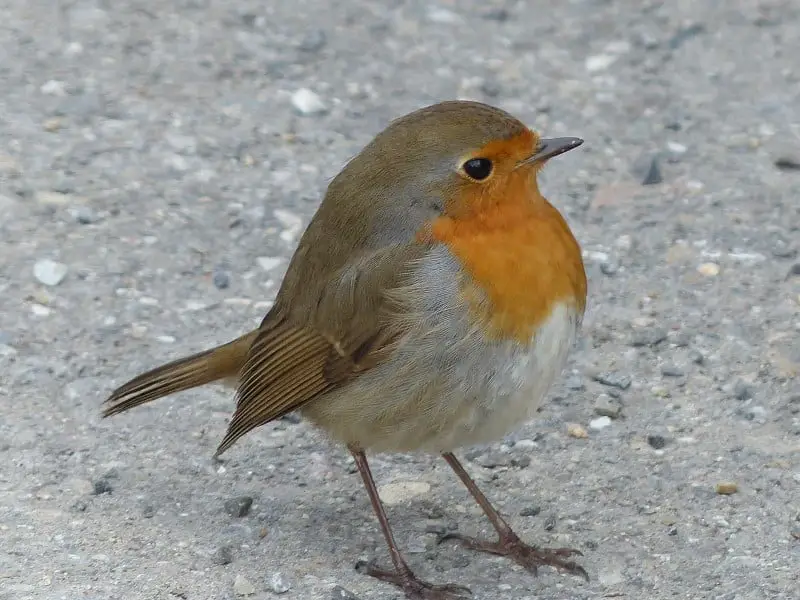We’ve sat for hours staring wondrously at many birds in our time, but it was the Robin that caught my attention on occasion, as they seem like the ones that prefer to hop around more than other birds do.
Turns out I’m not the only one that wondered about this, so I thought I’d write about it.
Here’s the quick answer first of all, then we’ll get into some more detail!
Why Do Robins Hop? Generally, robins are known to hop when the grass is too high for them to see over or sometimes because they just want to. Small birds like robins move farther in a single hop than they do taking several steps. However, hopping expends more energy than walking. Larger Birds though tend to walk more.
Taking the answer ‘another step’ further, many birds that spend most of the time in trees tend to be ‘Hoppers’. It is an efficient and energy-saving way of hopping from one branch to another. But on the ground, hopping takes more-energy.

However, robins are one of those few special species that opt to both walk and hop. To give you more details on this topic, below is a simple breakdown on Robins and their hopping reasons!
Does it take more energy to hop?
Energy saving is very important for birds than humans. Even if a well-fed human can live for days without eating birds have to be fed-everyday. This is because flying uses up energy 10 times than that of walking or hopping.
There is also a difference in the amount of energy used in hopping and walking comparatively hopping takes more energy than walking. This is why ground feeding birds like robins avoid hopping or even flying if foraging over short distances.
On contrast birds like Magpies walk when they only need to move very short ¬distances and they hop when the distance is somewhat greater. This is because magpies have a clumsy gait and so they can get to a place quickly by hopping than walking using less-energy.
But what’s important to remember is that depending on the bird and its type, it naturally chooses what is economically energy-saving. Birds know ¬instinctively what to do for the best.
When do Robins and other birds walk?
Robins most of the time walk smoothly on the ground and then stop abruptly when they come across long bushes or grasses. They tend to hop over these long grasses as a fast way of getting on the ground. This is how robins make effective between walking and hopping.
Generally, birds that spend most of their time on the ground like robins always walk. This is, in fact, one of the most energy-saving ways of getting around as I mentioned above. Even robins build their nest on or closer to the ground as a means of saving energy by walking and to prey easily on worms.
Do all birds hop?
Most birds hop but generally speaking, lighter or smaller birds tend to hop, whereas large or heavy birds walk or run.
This again depends on the place birds live and their food patterns. For example birds like tits and finches hop over running because most of them spend their time in trees, looking for food. And for those living in trees hopping is an easy way to move from one branch to another. Wagtails, on the other hand, spend most of their time on the ground chasing insects. Because of this they walk smoothly or run rather than hopping.
There are exceptions though, starlings are classed as small birds, but they do prefer to walk instead of hop.
Learning resources
We’ve found the ideal resources to continue your learning at home and at school on amazon. Help support our efforts for wildlife causes and keep this site working for nature. Amazon also donates to wild-life related charities!
Backyard Birds (Field Guides for Young Naturalists)
Interested in the birds around your area? Learn more about the birds in your back yard with this field guide to backyard birds, ideal for beginners!
To finish
We hope this has been useful in helping you understand why birds …and in this case – Robins prefer to Hop instead of walk or run. Feel free to check out our other articles.
